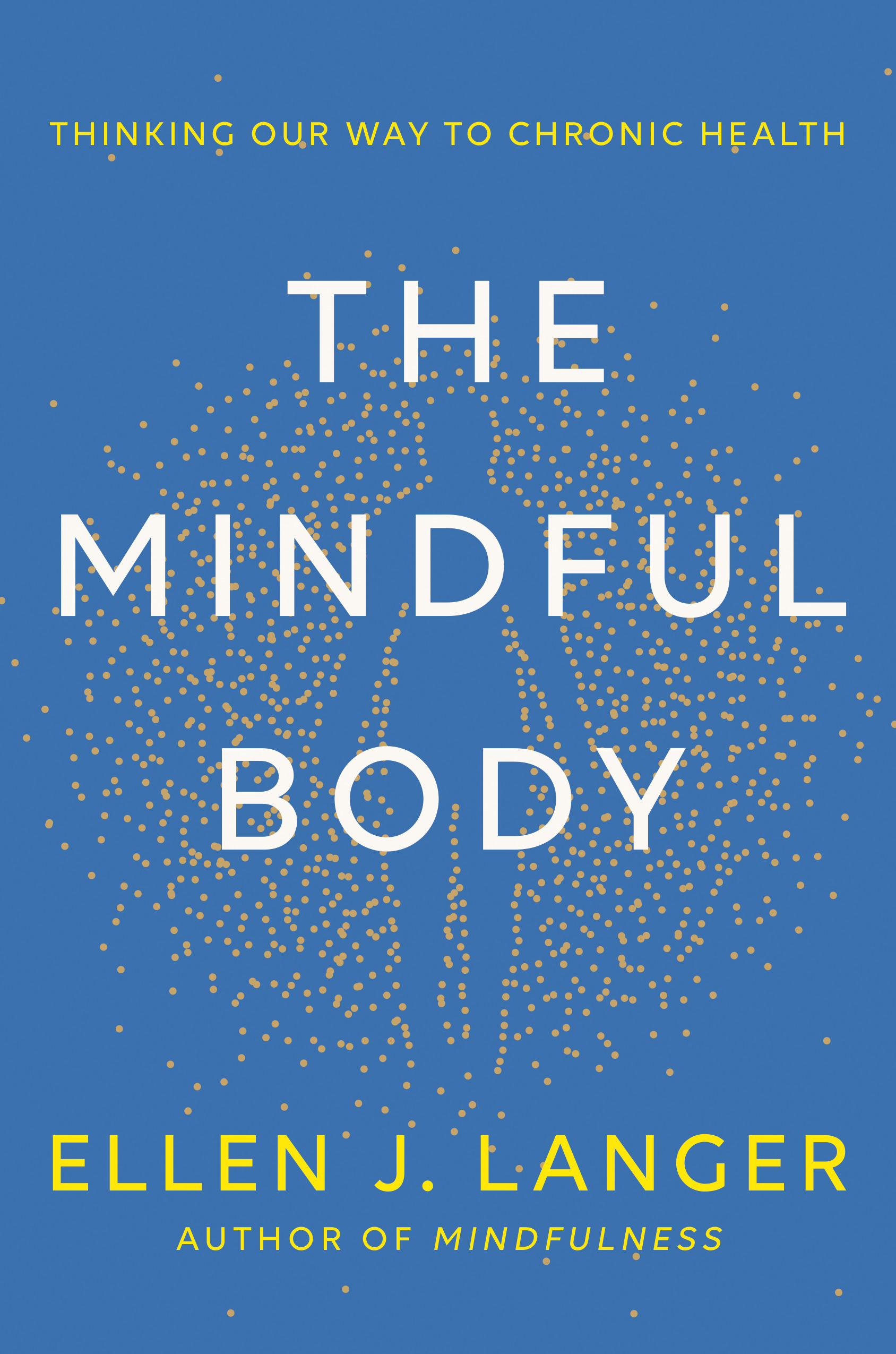When she was fifty-six, my mother was diagnosed with breast cancer. The disease had taken over her body, and she was warned that her treatment would be complex and brutal. Her prognosis was grim from the start. Her bout with cancer— from the lump she first found under her arm to its spread to her pancreas—was difficult for her and scary for me.
According to the doctors, she had only a few more months to live. Still, I stubbornly tried to keep her spirits up and pre- tended that the nightmare would pass. A colleague of mine once said that I marked the edge of the optimism continuum. Perhaps that’s a polite way of saying that I was in denial. (I don’t believe in denial, but more about that later.)
Then the most amazing thing happened: My mother’s cancer vanished. At first, we were all elated. But I soon realized the toll the treatment had taken on her. Because she wasn’t supposed to survive, the doctors hadn’t worried about her life after cancer. Not having had her limbs exercised while she was in the hospital, she was too weak to walk once she returned home and was confined to a wheelchair, which made her feel even less healthy.
I was struck by how people treated her. While I saw my mother’s recovery as a testament to her strength, everyone else saw only her persistent weakness. In their eyes, she was still sick, clinging to life. They assumed the cancer would come back and she’d be back in the hospital before long. They were right. Within nine months, cancer appeared, and she slipped into a coma. She was fifty-seven when she died.
Many ideas about cancer, including its treatment, have changed over the years. Now it is more often thought of as a chronic disease, not the dreaded unspeakable death sentence it was decades ago. Oncology wards may have nutritionists on staff, along with social workers to attend to emotional needs. But some things have not changed, and cancer is still predominantly treated as a disease where one’s psychology is not as important as medical interventions. Yet diagnoses, while useful, direct attention to only a fraction of lived experience. Context influences our physical responses but is often overlooked by the medical world and ourselves.
I could see how this dramatically affected my mother’s state of mind. I watched as the world of medicine took away her sense of control, how it made her feel sick and weak even when the cancer was gone. I saw how the diagnosis became a label that defined the way she was treated by doctors, nurses, and people outside the hospital. My mother was no longer the vivacious, beautiful woman I’d known my entire life. She was a helpless cancer patient anxiously awaiting whatever treatment the medical world would try next.
My mother’s experience with cancer convinced me that our current approach to health may make us sicker. Thinking about the root causes of her illness turned out to be an inflection point for my scientific career, and it profoundly shaped the mindfulness research I conducted over the decades that followed. The word “mindfulness” has become ubiquitous since my early work in the 1970s. It’s hard to open a newspaper or magazine, or even listen to an interview, without the word “mindful” being used. Most of this usage presents mind- fulness as a condition solely of the mind and often related to the practice of meditation. But mindfulness—as my students and I have shown—is instead the simple process of actively noticing things, no meditation required. When mindful, we notice things we didn’t notice before, and we come to see that we didn’t know the things we thought we knew as well as we thought we knew them. Everything becomes interesting and potentially useful in a new way.
But my use of the word “mindfulness” also, importantly, refers to a condition of the body. Indeed, I believe our psychology may be the most important determinant of our health. I’m not just speaking of harmony between mind and body. I believe the mind and body comprise a single system, and every change in the human being is essentially simultaneously a change at the level of the mind (that is, a cognitive change) as well as the body (a hormonal, neural, and/or behavioral change). When we open our minds to this idea of mind-body unity, new possibilities for controlling our health become real. Making use of the power of a mindful body is well within our grasp.
My lab at Harvard focuses on the effects of mind-body unity on our health. It’s not a wet lab, where one analyzes chemicals and the like. It’s just a room (now often virtual) where my students, postdocs, and other interested faculty meet to explore unusual ideas. The members of my lab and I first tested the idea of mind-body unity more than forty years ago in what came to be known as my counterclockwise study. In that experiment, elderly men lived for a week as if they were their younger selves. We housed them in a retreat that was retrofitted to suggest that time had gone backward twenty years. From the magazines on the coffee table to the albums next to the record player, from the dishes in the kitchen cabinets to the shows available (on VCR tape) on the old box TV, everything cued the sense that it was an earlier time, and that the inhabitants of the house were younger. We also asked the men to behave like younger versions of themselves. To wit, even the very oldest and those with limited mobility had to carry their own luggage up the front steps and into their rooms. If that meant they had to take one shirt instead of one piece of luggage at a time, so be it. The results of this time- machine living—of imagining themselves being their younger selves—were stunning. The men’s bodies changed. Their vision, hearing, strength, and even objective appearance improved.
The findings were so at odds with the prevailing view of mind-body dualism and what was believed to be possible, that it was not surprising that some didn’t believe them. Nevertheless, I was so energized by this experiment and the way in which the results so elegantly demonstrated mind-body unity that I’ve been exploring the concept ever since. I was emboldened to test all sorts of seemingly extreme hypotheses related to it—from how our thoughts may give us a cold, to how they control our insulin levels and the amount of sleep we need, to how they can provide a psychological cure for many chronic diseases.
The goal of all my work has always been to find out just how important psychology is to our health, and to return the control over our bodies back to us. I’ve set out to show that the mind is a primary determinant of the body’s health, and that simple interventions to change the way we think can dramatically improve our well-being. Perhaps most important among these is my work on attention to symptom variability, where I’ve shown that chronic diseases such as MS and Parkinson’s, as well as chronic pain, may be helped with a psychological intervention.
In the pages that follow I will unpack this thinking. But to change our minds in order to change our bodies, we first need to clear up a few misconceptions. Toward that end, chapters 1 through 5 address what I consider to be foundational issues about rules, risk, prediction, decision-making, and social comparing. If we can adopt a new view of these concepts, we are well on our way to being more mindful, confident, and empowered. My work shows that when we make these shifts in our thinking, our relationships with others and ourselves improve, and our stress lessens, all in the service of improving our health.
Chapters 6, 7, and 8 explore possibilities for our health and well-being possibilities to which we have previously been blind. Based on mind-body research by myself and others, these chapters chart a path to a different way of living our lives—with a mindful body—and to the restoration of some of the health we’ve lost because of our old ways of thinking.
My work on The Mindful Body has taken some unexpected— sometimes bizarre—turns. Rather than ignore them, I struggle to understand them. This has led me to explore such things as mindful contagion. As we’ll see in chapter 9, my early research on the topic suggests that just being in the presence of someone mindful increases our own mindfulness, which has ramifications for heavy drinkers and even those on the spectrum. I also believe that the future holds the possibility of creating a mindful utopia, and imagining that future helps us think differently about the present.
Throughout these pages, I hope to make you see that every thought we have may affect our health. Indeed, better health for all of us may be just a thought away.

Excerpted from The Mindful Body: Thinking Our Way to Chronic Health by Ellen J. Langer. Copyright © 2023 by Ellen J. Langer, PhD. Excerpted by permission of Ballantine Books, an imprint of Penguin Random House LLC. All rights reserved. No part of this excerpt may be reproduced or reprinted without permission in writing from the publisher.


